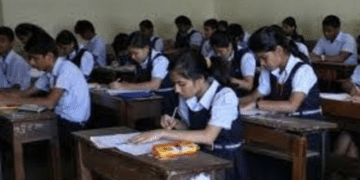Odisha is on a path to transformation as Chief Minister Mohan Charan Majhi unveils the ambitious ‘Vision Odisha 2036 & 2047’ strategy, aimed at building a prosperous and developed state.
In a consultation workshop held at Lokseva Bhavan, the government sought expert recommendations for the final draft of the Vision Document—an initiative reflecting the aspirations of Odisha’s 4.5 crore citizens.
To achieve a $500 billion economy by 2036, the state has identified 36 strategic programs under the ’36 for 36′ initiative. These programs span critical sectors like the economy, industry, education, healthcare, infrastructure, tourism, innovation, women’s empowerment, rural development, and tribal welfare. The focus is on ensuring that even the most underserved communities receive fundamental resources for an improved standard of living.
Chief Minister Majhi reaffirmed Odisha’s commitment to inclusive growth, stating, “Our Vision Document is in its final stage. After expert consultations, we will ensure strategic interventions to accelerate Odisha’s progress. This document is a roadmap for the future generations, shaping a stronger and prouder Odisha.”
The consultation workshop featured renowned administrators, academicians, public representatives, industrialists, and cultural icons, contributing their perspectives. Odisha also stands as India’s first state to leverage Artificial Intelligence for public data analysis, ensuring that citizen-driven insights guide policymaking. The government has gathered over 320,000 proposals from residents and the Odia diaspora to incorporate into the vision framework.
In alignment with Prime Minister Narendra Modi’s “Developed India” vision for 2047, Odisha aspires to play a pivotal role in national progress, marking its centenary as a state with groundbreaking achievements. The government has outlined policies addressing economic growth, employment generation, women’s empowerment, technological advancements, and cultural heritage.
Deputy Chief Minister Pravati Parida emphasised Odisha’s commitment to self-reliance, stating, “Empowering women remains a key focus. Programs such as ‘Lakshapati Didi’ have already created 1.7 million financially independent women, driving grassroots economic transformation.”




















